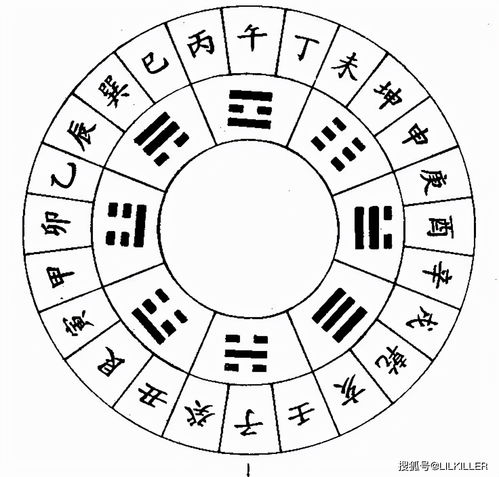Xiao Liunan Heavenly Stems and Earthly Branches (lucky number one)
- treeofffate.com
- 2024-05-13 13:05:45



Small Six Nons Heavenly Stems and Earthly Branches
Xiao Liu Ren is one of the ancient prediction arts, mainly used to predict weather, water conservancy, agriculture and so on. It is based on the twelve earthly branches and ten heavenly stems, which are combined to form sixty jiazi, and each jiazi corresponds to a different divine fate. Among them, Xiaoliu Nong Tianjian is one of the most important parts.1: Historical origin
Xiao Liu Ren originated in Tang Dynasty and reached its peak in Song Dynasty. Its theoretical basis includes the doctrine of yin and yang, five elements, the I Ching and other elements, and began to form its own unique system in practice. In the Ming and Qing Dynasties, Xiao Liu Ren was widely used in folk prediction and agricultural production.
It is worth mentioning that in traditional culture, "non" has a high status. The Zhou Yi said: "Qian Dao change begins and Heng." "Heng, through also; reach also; smooth also." "Heng, things do not pass also." Therefore, the meaning of "great luck", "everything is as it should be" is closely related to "Heng".
2: Theoretical system
Xiaoliuonian Heavenly Stems and Earthly Branches is the core part of the theory system of Xiaoliuonian. By combining the Heavenly Stems and Earthly Branches, it forms sixty jiazi and connects them with different divine fates. These Divine Fatalities include natural phenomena such as wind, rain, thunder and lightning, frost and other natural phenomena, as well as personnel events such as good fortune, bad luck and misfortune.

The theory of Xiaoliuonan holds that each jiazi has its own specific pattern of change in climate and meteorology. When forecasting, you can predict the natural disasters or personnel changes that may occur in a period of time based on the current A Zi and the corresponding Divine Fate.
3: Practical application
Xiaoliuonian Heavenly Stems and Earthly Branches is of great significance in traditional culture and is widely used in folk prediction and agricultural production. For example, when planting a crop, you can choose a suitable time to plant the crop according to the current A Zi and the corresponding Divine Fate; when building a water conservancy project, you need to determine the construction time by combining the local climatic conditions and the current A Zi.
In addition, in terms of folk beliefs, Xiao Liu Ren is also regarded as a mysterious power that can bless peace and good luck and avoid disasters. Therefore, in some traditional festivals or important occasions, people will predict the fortune of Xiao Liu Ren by predicting Xiao Liu Ren and carry out various activities accordingly.
4: Modern Research
Although Xiao Liunan already has a long history and wide application, its theoretical and practical values still need to be further explored in the context of highly developed modern science and technology. At present, many scholars both inside and outside the industry have conducted in-depth research on Xiao Liunan and achieved many meaningful results.
For example, in the field of meteorology, some experts analyze the relationship between historical meteorological data and the prediction results of Xiaoliu Nong, and believe that the latter can provide effective reference information; in agricultural production, some scholars have utilized the theory of Xiaoliu Nong to carry out experiments on crop cultivation, and have achieved good results.
Conclusion
To summarize, Xiaoliu Nong Tianjian is a very important part of traditional culture with special significance. It contains a rich and profound theoretical system and is also widely used in folk prediction and agricultural production. Although the theoretical and practical value of Xiaoliuonan still needs to be further explored in the context of highly developed modern science and technology, its historical origin and cultural connotation have been deeply rooted in traditional culture.
相关文章
- one of the six little nonnons of the 60 days of the year (i.e. 2000 or 2060)
- Why the Big Six Guide is good
- six nonnons and longitude (Daoism)
- What color is Xiao Liu Nong Sui Xi (Xiao Liu Nong Sui Xi asks about relationship status)
- Order of the Little Six Nons
- How to break the red mouth in the small six non-non red mouth (small six non-non red mouth must be bad)
- mastermind
- What are the disks of Xiao Liu Nong (How many disks are there in Xiao Liu Nong?)
